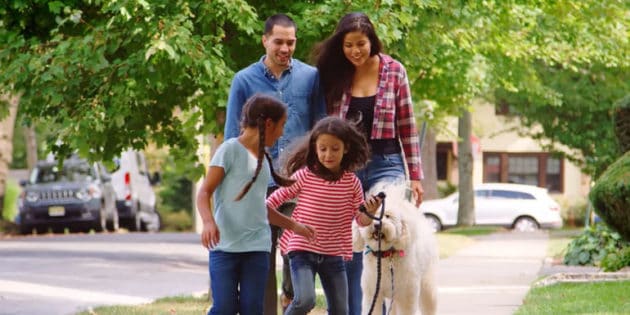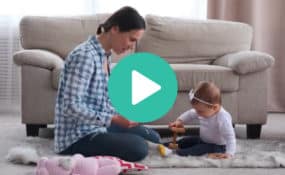Are you worried about the effects of the COVID-19 lockdown on your kid’s social skills? Don’t be. There’s a lot to be gained from time spent with family, or even time spent on their own.
Before the coronavirus pandemic began, kids went to school, church and playgroups. They went to the park and played out in the street with their friends.
But ever since most of the world shut down to prevent the spread of the virus, kids have been at home most of the time with mom or dad, and possibly a sibling or two.
Parents are trying to get their kids connected to friends through video chats, but often times this doesn’t seem to be enough. Some children don’t do well on video calls with teachers and friends. Some who are quiet in class are even more so when the class is on a zoom meeting where it’s even easier to withdraw and leave the screen.
So this has led to a common fear among parents- “are my kids getting enough socialization?” And “will this lack of socialization affect them developmentally?” How will young kids develop when they are experiencing social deprivation?
Social interactions are an important part of development throughout childhood and spending time with kids their own age is generally apart of that process. But don’t fret, you don’t have to worry too much about what their missing right now.
Kids tend to be resilient and adaptable and there’s a lot to be gained from a child’s interactions with their parents and brothers and sisters. Even interactions with their pets can be beneficial. Time alone and even boredom can be valuable too. Even without interaction with peers, kids can still develop socially and emotionally in ways that will prepare them for real friendships when they can resume.
It’s an unusual time, but most kids will come out just fine because we are biologically wired to adapt.
In most cases, the quarantine itself isn’t causing harm or depriving kids of what they need, especially in cases when a child’s needs are otherwise being met.
So, parents can take comfort in the value of relationships already in their own home.
A child’s secure attachment with their parents sets them up to have stronger friendships in the future. Interactions with siblings still allow children to learn to negotiate, deal with conflict and resolve differences. Pets can teach a child empathy, responsibility, and how to see the perspective of others.
Time at home offers the chance for kids to develop some independence. That could come in the form of a young child playing alone for a while or an older child finding new ways to keep in touch with old friends.
Every kid is different. Some might need more time to adjust than others, and make no mistake, it is a big adjustment for kids. But kids don’t need a ton of friends and a “certain” type of interaction to thrive. Even just one good friend can help children develop an appreciation for relationships. Yes, they need to be connected, but that connection can come in many forms, such as writing letters, drawing pictures for each other, having video chats and even something as old fashioned as talking to each other through the fence!
Now, what should you be looking out for? Many kids, especially older ones, may be having an especially hard time being apart from friends. There are some behavioral signs to look out for that might suggest that your child is struggling.
1. Is you your child withdrawn or sad?
{control issues}
2. Are they harder to control?
{sleep issues}
3. Do they have trouble sleeping at night?
{struggling}
4. Are they struggling with basic daily interactions
Any of these lasting a decent amount of time, might warrant a conversation with a health care provider.
So, what’s a parent to do? Foster healthy growth by trying to spend some time each day socially engaged with your child. You don’t necessarily want it always at the end of the day when everyone is tired. You want it to be predictable.
You don’t need to track how many minutes you spent with them, whether it was stimulating or not, or whether the interaction was “perfect.” You just need to be there. Make sure they know that you are there for them and that they are safe.
- How Has The Lock Down Affected Your Child’s Social Skills? - November 18, 2020
- How Has The Lock Down Affected Your Child’s Social Skills? - November 18, 2020
- How Has The Lock Down Affected Your Child’s Social Skills? - November 18, 2020





